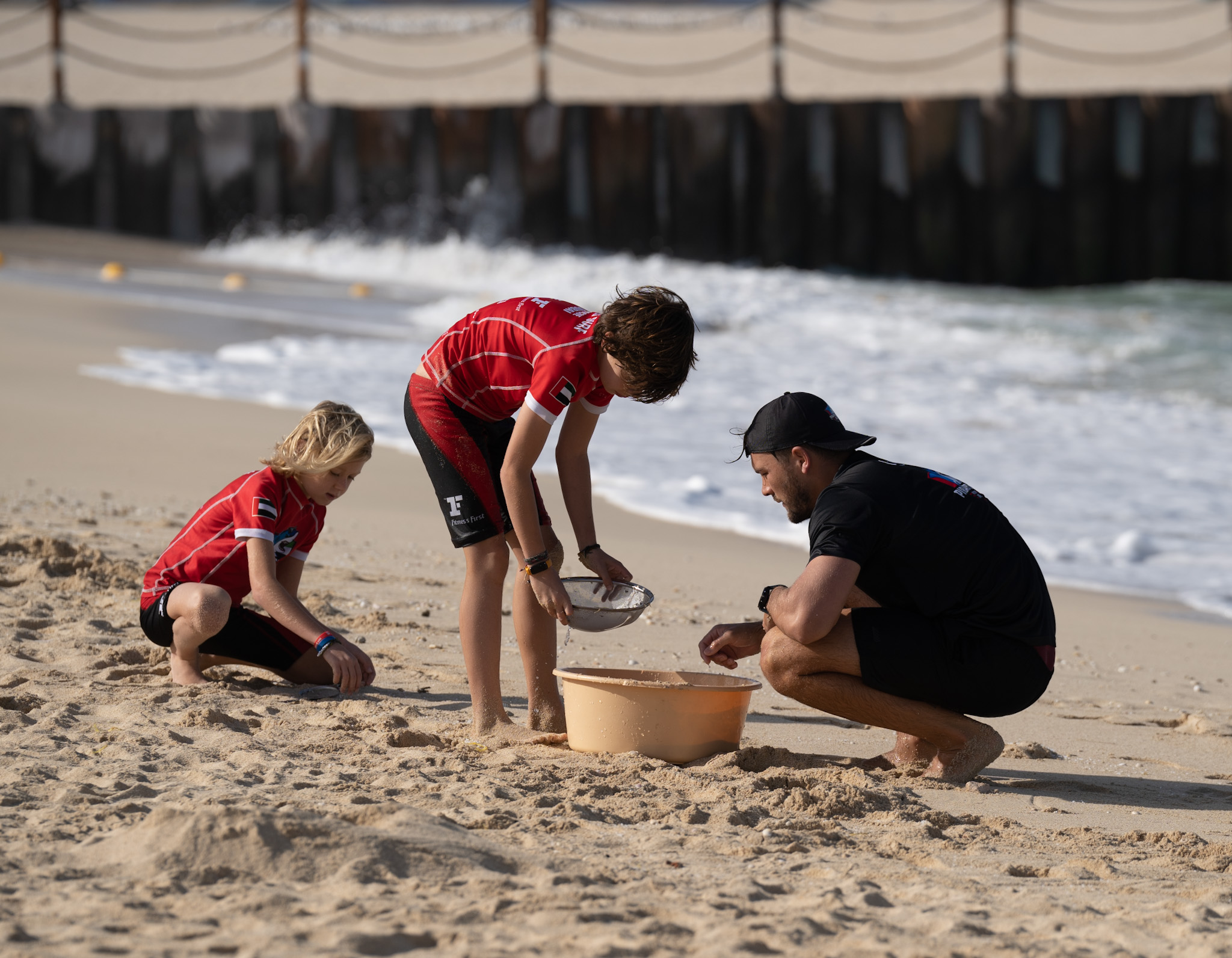On Saturday 18th February 2023 Dubai’s coastline woke up to a sea of nurdles , with limited information on the scale of this spill, many are asking–where did they come from, –who was managing their movement, –where were the nurdles travelling to? –who is responsible? How can we stop this happening again? Here’s what we know so far…
Unknown polluters
As entire bags of pellets are washing up on Dubai coastlines we do know they were produced by Mitsui as this is printed on the bags. We still do not know where they came from or where they were going. If these nurdles have come from a capsized container or have been thrown from a container to prevent adverse risk to life during a storm, the company who owns the pellets is likely to be able to simply claim on their insurance for the damages and financial loss they have faced.
Who is on scene cleaning up the coast?
Clean up efforts are being led by the public, local organisations and Dubai Municipality. Once in the environment pellets are very difficult to clean up. As the bags containing these pellets spilt and degrade many more millions will be released and will spread far and wide. There are currently no internationally agreed protocols for cleaning up plastic pellets after a spill and further guidance and international cooperation is need to ensure resources and guidance is in place to deal with spills swiftly.
Who is covering the costs of the aftermath the community and environment are facing?
The financial burden currently lies with the community and the negative environmental impact that will affect biodiversity in this area. As we have seen from the X-press pearl catastrophe in Sri Lanka in 2021 the aftermath of a significant spill leads to the loss of habitats, livelihoods and communities are affected. There is still no specific international liability and compensation regime in place specifically for plastic pellets making it difficult to ensure that the polluter pays.
How can we stop plastic pellets spills at sea?
Today marks the three year anniversary since the devastating spill of more than 10 tonnes of plastic pellets in the German Bight due to stormy weather conditions. Yet according to the the International Maritime Organisation (IMO) plastic pellets are not classified as hazardous when being transported despite the devastating effect they can have when spilled and there are no rules on how pellets have to be stowed to prevent spills happening in the future. Simple measure like ensuring pellets are stowed below deck in sturdy, sealed containers, like other hazardous goods, can make a big difference. This will help prevent plastic pellets going over board and where accidents do occur make them far easier to clean up. We are joining calls for the plastic pellets to be reclassified by the IMO to make sure they are safely stowed in the future and proper protocols are in place for clean up and compensation for communities and the environment.
If you are in an area that is affected by pellet pollution there are lots of organisations on hand to support with nurdle clean-up.
Goumbook: https://goumbook.com/
Reloop (working to recycle plastic pellets): https://www.instagram.com/reloopapp/
local surf groups
Pirates Surf Rescue Dubai and Abu Dhabi group: https://www.instagram.com/pirates.surf/
Surf House Dubai: https://surfingdubai.com/
How can I help?
- Be careful when handling pellets
Remember when beach cleaning, as it isn’t clear if other products, including chemicals have been spilt alongside plastic pellets. We would recommend handling plastic pellets with gloves. They can adsorb toxic pollutants on their surface, even bacteria such as E.Coli, so please remember to wash your hands if you accidentally handle them.
- Bin securely
If you do decide to throw them away, sometimes the best option is to fill something sturdy with a lid so they can’t escape. Or put them in multiple plastic bags (so the bag doesn’t split and spill nurdles into the environment on the way to landfill).
- Send to an artist
Check out artists in your local area/country who may do work with nurdles. An artist we can recommend is Maarten Vanden Eynde www.maartenvandeneynde.com/, he is creating a growing artwork called Check mate, which visualises the scale of plastic pollution using a chess board and nurdles.
- Log your nurdle hunt
Please submit all your finds to https://www.nurdlehunt.org.uk/take-part/submit-your-finds.html to help us map the scale of the issue and support organisations and communities dealing with plastic pellet pollution across the world.
Are you an NGO looking for more support? Visit our hub for support and information on upcoming events at hub.nurdlehunt.org
Image thumbnail description: Bags of plastic pellets wash up on Sunset Beach (Credit: Gerry Blaksley https://www.instagram.com/gblaksley)
